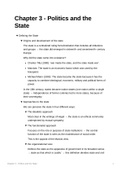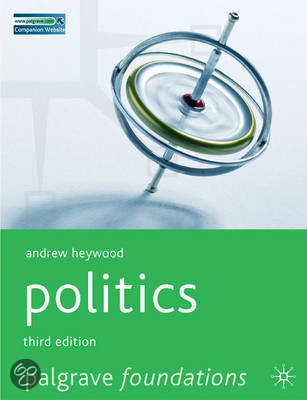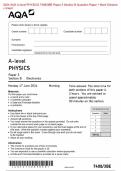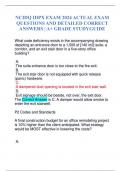Samenvatting
Summary of chapter 3 'Politics and the State' by Andrew Heywood
- Vak
- Instelling
- Boek
This document consists of an extensive summary of the third chapter out of the book 'Politcs' by Andrew Heywood. Readings for the course 'Introduction to Political Science'.
[Meer zien]








